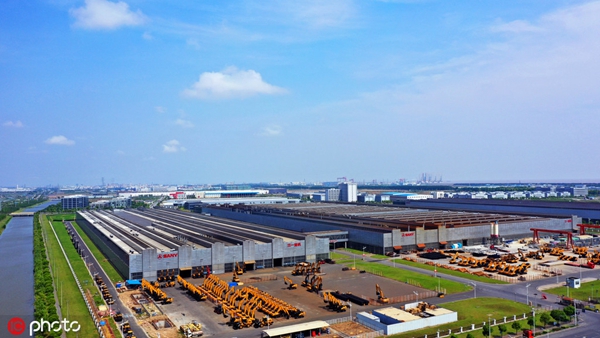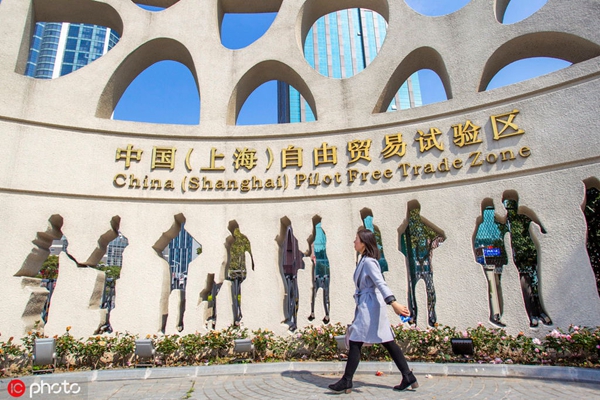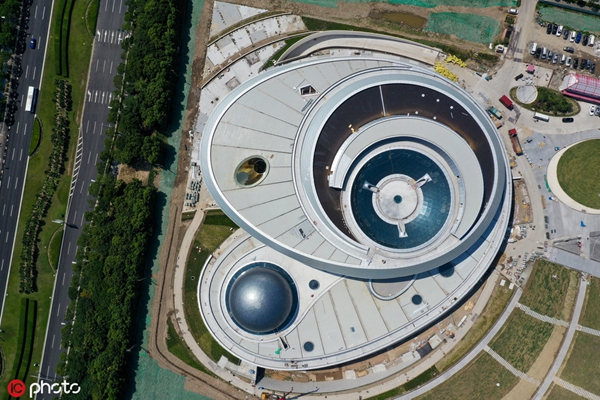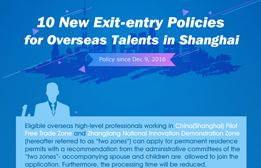China adds new area to Shanghai FTZ for further opening up

An aerial view of Lingang area, Shanghai, on Aug 6, 2019. [Photo/IC]
China's State Council recently issued an overall plan for the new Lingang area of the China (Shanghai) Pilot Free Trade Zone as part of innovative measures to further reform and open up.
The new area will match the standards of the most competitive free trade zones worldwide and implement opening-up policies and systems with strong global market competitiveness, Vice Commerce Minister Wang Shouwen told a press conference on Aug 6.
"The area will be built into a special economic function zone with global influence and competitiveness to better serve the country's overall opening-up strategy," said Wang.
According to the plan, the area will take full advantage of open systems and strive to become a business cluster for international businesses, cross-border financial services, frontier technology research and development, and cross-border services trade.
Based on preliminary practices, Lingang area will explore open policies and systems with strong international competitiveness to develop key sectors that are in line with national strategic needs and have a large international market demand but request high openness and can't be implemented in other places.
Adhering to risk prevention and control, the new area will increase risk tests for the open economy and build a comprehensive risk management system covering supervision on key sectors and credit rating management.
"The addition of the new area is not only an extension of the original free trade zone but an all-round, deep-level and fundamental institutional innovation instead of just copying existing policy," said Chen Yin, vice mayor of Shanghai.
Lingang area will develop key technologies for cutting-edge industries, including integrated circuits, biomedicine, artificial intelligence and aerospace, and improve service capability in finance, trade, shipping and headquarters economies.
To facilitate the development of the new Lingang area, Shanghai has designed favorable policies focusing on management authority, financial support, talent attraction, land planning and housing security, Wang said.
"To attract more talents, a total of 12 policies have been proposed, including the shortening of the number of years for the transition of residence permits to household registration from the original seven to five, as well as just three for core talents."
Requirements for purchasing houses for talents who are not Shanghai residents have adjusted from resident households to individuals and the number of years of paying a tax or social security to purchase a house was shortened from five to three.
According to the plan, the tax policy to be implemented in the area will better serve local economic development.
Income tax shall be levied at a reduced rate of 15 percent within five years of establishment for qualified enterprises engaged in manufacturing and R&D in key fields such as integrated circuits, artificial intelligence, biomedicine and civil aviation, says the plan.
China will explore incentive personal income tax policy to motivate overseas high-caliber personnel, it also adds.

A woman walks in the Shanghai FTZ. [Photo/China Daily]

An aerial view of the newly-built Shanghai Science and Technology Museum in Lingang area, Shanghai, on Aug 6, 2019. [Photo/IC]

 Print
Print Mail
Mail




